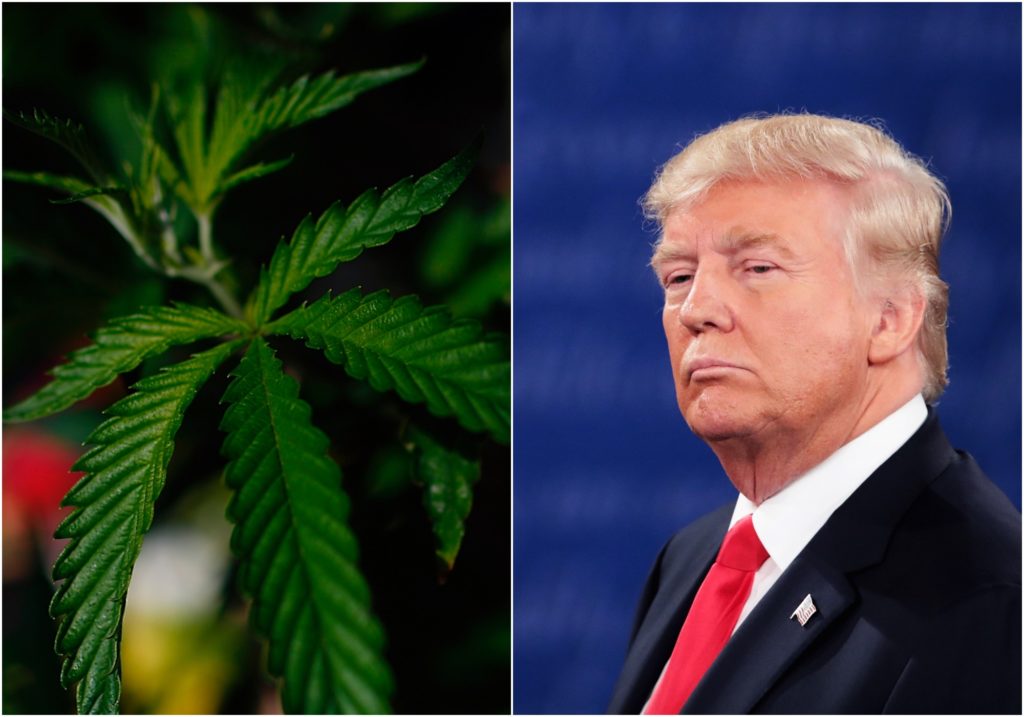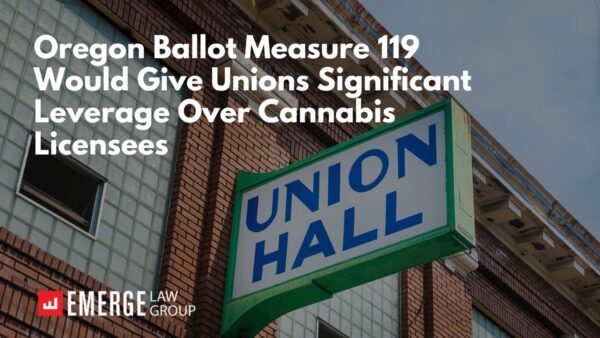Bad dreamer, what’s your name?
Looks like we’re riding on the same train
Looks as though there’ll be more pain
There’s gonna be a showdown
I have always thought that the August 29, 2013 “Cole Memo” is an amazing legal document. In case you’ve never read it, or in case you haven’t read it in a while, here’s a link: https://www.justice.gov/iso/opa/resources/3052013829132756857467.pdf
The Cole Memo was released by the U.S. Department of Justice (the “US DOJ”) in response to the fine people of Colorado and Washington passing ballot measures in November 2012 that legalized the commercial production and sale of marijuana for all persons 21 years of age and older. The Cole Memo summarizes the enforcement policies of the US DOJ concerning marijuana, and somehow concludes that federal US attorneys should just sit back and let commercial marijuana businesses sell marijuana to non-patient consumers right out in the open. On Main Street. In the middle of town. Smack dab in front of everyone driving down the road or walking down the sidewalk. When it’s clear as a crystal that every single person involved is violating federal law all day long.
How could this happen? Is the Cole Memo an enlightened piece of political pragmatism? A bold action by the Executive Branch in response to inaction by the Legislative Branch and a realization that the War on Drugs was a complete failure? A lazy cop-out by the Executive Branch because it didn’t have the stomach to either enforce or change the law? A nonsensical mish-mash of pretzel logic by the liberal elites in the Obama Administration? The Cole Memo is probably all of these things, and that’s what makes it so great. And without it, thousands of marijuana businesses and probably millions of marijuana consumers across the country would not be doing what they are doing today.
Under a different U.S. President and a different U.S. Attorney General, there might have been an entirely opposite version of the Cole Memo, which could have resulted in SWAT teams descending on medical marijuana businesses and in the federal government threatening state employees with imprisonment should they dare to implement the ballot measures. If that had happened back in 2013, I am quite certain that Oregon Ballot Measure 91 would not have passed in 2014, at least not in the form it took.
But I digress. What is President-elect Trump going to do once he affirms to the TV cameras that he will preserve, protect and defend the Constitution of the United States? I have read many articles discussing the possibilities, and most everyone’s conclusion, including mine, can be boiled down to: “Who the hell knows?” Things could get worse, for sure. On the other hand, maybe things get better and then it’s truly game over for federal prohibition in Oregon and other States that have legalized marijuana. Either way though, I suspect that the Cole Memo won’t survive the first six months of calendar year 2017.
From a business perspective, what is one to do with such uncertainty? Keep on keepin’ on seems like a logical choice at the moment. The industry was never for the faint-hearted, and there are enough other real day-to-day problems to deal with. So what’s the point of getting bogged down thinking about an unanswerable question when we’ll all know the answer soon enough. But what about those tip-toeing around the industry at the moment, like . . . uh . . . investors? If they’re not already in the game, they don’t need to do anything. They can sit on the sidelines and wait for more certainty. Or maybe they see an advantage in the uncertainty, and think they should move in now. Market inefficiencies lead to opportunities and all of that.
In any event, here’s why I’m writing this. If you are a client who engaged our firm to assist you in raising money at any time during the past few years, or if you are an investor who has invested in one of our clients, you have probably seen the following securities law risk factor in one of the investment documents:
Our business is illegal under federal law. Producing, manufacturing, processing, possessing, distributing, selling, and using marijuana is a federal crime. Under the Federal Controlled Substances Act of 1970 (the “Federal CSA”), marijuana is classified as a Schedule I drug, which is defined as having a high potential for abuse and no currently accepted medical use. Your investment in the Company may: (a) expose you personally to criminal liability under federal law, resulting in monetary fines and jail time; and (b) expose any real and personal property used in connection with our business to seizure and forfeiture to the federal government. We encourage you to carefully review the U.S. Department of Justice Memorandum for All United States Attorneys dated August 29, 2013 from James M. Cole (the “Cole Memo”), which summarizes the current enforcement policies of the U.S. Department of Justice (the “US DOJ”) concerning marijuana.
Now, I’ve been a securities law attorney for over 20 years and I can tell you that this is one of the craziest risk factors that’s ever been written in the history of securities laws. “Invest in our company and you can go to jail.”
Despite that doomsday scenario, I’ve had the feeling for some time now that nobody’s given it two seconds’ worth of thought. “Yeah yeah yeah, it’s against federal law. Thanks for the news flash. Now where do I sign?” Why did everyone just start blowing through this risk factor like they couldn’t care less? The answer I’m guessing is a mixture of: (i) the Cole Memo, and the fact that federal US attorneys have actually adhered to it for years; and (ii) the fact that so many people are involved in the industry now that there’s a feeling of safety in sheer numbers. “What are they going to do? Arrest everyone?”
Probably not. But a big chill could set in for a while if Trump’s Attorney General nominee Jeff Sessions says or does one thing rather than another. And so for now, I am unveiling a new securities law risk factor, which will appear, along with the original, in our documents for clients who are seeking to raise money from investors. To be sure, this one won’t last as long as the original Cole Memo risk factor. And as mentioned, I am guessing that both of these risk factors will be relegated to the dustbin in the near future, almost certainly to be replaced by a new one (hopefully better, but perhaps worse). For now however, behold the following, and keep on keepin’ on:
The federal government’s enforcement policies with respect to marijuana may change. Since the release of the Cole Memo, federal United States Attorneys having jurisdiction over Oregon have not attempted to prosecute any person whose commercial marijuana operation is in compliance with Oregon law. As a result of the United States presidential election held on November 8, 2016, Donald Trump is expected to become the next United States president on January 20, 2017. Mr. Trump has announced that he intends to nominate Jeff Sessions for Attorney General of the United States. If confirmed by the United States Senate, Mr. Sessions will head the US DOJ and dictate the US DOJ’s enforcement policies concerning marijuana. Mr. Sessions has previously stated his opposition to the legalization of marijuana, and may adopt US DOJ enforcement policies consistent with his position, including but not limited to a revocation of the Cole Memo. Any change in the US DOJ’s enforcement policies likely will have a material adverse effect on us.
Tonight, the longest night
Take it away Mr. Lynne: https://www.youtube.com/watch?v=m0cuCLTnkMM
Showdown lyrics © Sony/ATV Music Publishing LLC, Warner/Chappell Music, Inc.





